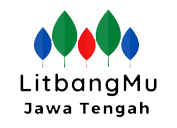PEMODELAN GEOGRAPHICALLY WEIGHTED NEGATIVE BINOMIAL REGRESSION (GWNBR) PADA KASUS MALARIA DI INDONESIA
DOI:
https://doi.org/10.51402/jle.v2i2.100Keywords:
GWNBR, MalariaAbstract
Geographically Weighted Negative Binomial Regression Modeling by Comparing Adaptive Gaussian Weighting and Adaptive Tricube in Cases of Malaria in Indonesia. Malaria was an infectious disease caused by the bite of female malaria mosquitoes (Anopheles) caused by the Plasmodium parasite that breeds in human red blood cells. Malaria is one of the biggest causes of death in Indonesia, so it needs special handling in preventing the number of Indonesian malaria cases. The spread of malaria cases was caused by population density, the households with clean and healthy living behaviors (PHBS), the sufferers receiving ACT programs, and the households living in slums. Indonesia is a unitary state that has a large area and certainly has different environmental characteristics. So that spatial regression analysis is the right solution for the case of Malaria in Indonesia. The spatial regression analysis used is Geographically Weighted Negative Binomial Regression (GWNBR) is one of the models on spatial points. The purpose of this study is to determine the best modeling using GWNBR with malaria cases in Indonesia and the factors that influence it from a regional perspective by comparing the Adaptive Gaussian weighting matrix and Adaptive Tricube weighting matrix. The results showed that the best modeling with the smallest AIC value of 695,2341962 was Geographically Weighted Negative Binomial Regression (GWNBR) with Adaptive Tricube weighting. Significant variable are population density, provision of ACT treatment and slums by taking samples from Papua Province as the province with the highest number of malaria cases.
References
Achmadi, U.F. 2005. Manajemen Penyakit Berbasis Wilayah. Jakarta: Kompas Media Nusantara. Publishing.
Andi,A.A.,dkk.2012. Malaria Di Indonesia Tinjauan Aspek Epidemiologi. Fakultas Psikologi. Universitas Indonesia. Masagena Press: Makassar
Anselin, L. 1988. Spatial Econometris: Methods and Models. Dordrecht:Kluwer Academic Publishers.
Armawaty, W., N. 2018. Metode Regresi Poisson Bivariat Dalam Pemodelan Jumlah Kasus HIV Dan AIDS Di Jawa Tengah Tahun 2016. Jurusan Statistika. Fakultas Matematika Dan Ilmu Pengetahuan Alam. Universitas Islam Indonesia. Yogyakarta
Casella G, Berger RL. 1990. Statistiscal Inference. California : Brooks/Cole.
Cameron, A.C., Trivedi, P.K. 1998, Regression Analysis of Count Data, Cambridge University Press, United Kingdom.
Fotheringham, A.S., Brusdon, C., Charlton, M. 2002. Geographically Weighted Regression : The Analysis of Spatially Varying Relationships. West Sussex: John Wiley and Sons, Ltd.
Greene, W. 2008. Functional Forms for the Negative Binomial Model for Count Data, Foundation, and Trends in Ecometrics,99,585-590. New York: New York University.
Hardin, J. W., & Hilbe, J. M. 2007. Generalized Linear Models and Extensions Second Edition. Texas: Stata Press.
Hidayanti, U, Latra, I., N, Purhadi. 2015. Pemodelan Dan Pemetdaan Jumlah Kasus DBD Di Kota Surabaya Dengan Geographically Weighted Negative Binomial Regression (GWNBR) dan Flexibly Shaped Spatial Scan Statistic. Jurusan Statistika. FMIPA. Institut Teknologi Sepuluh Nopember. Surabaya.
Hocking, R.R. 1996. Method and Applications of Linier Models. New York : John Wiley and Sons,Inc.
Kemenkes RI. 2018. Data Dan Informasi Profil Kesehatan Indonesia Tahun 2018. Jakarta: Kementerian Kesehatan Republik Indonesia.
Kemenkes RI. 2018. Profil Kesehatan Indonesia Tahun 2018. Jakarta: Kementerian Kesehatan Republik Indonesia.
Kemenkes RI. 2016. Infodatin Malaria 2016. Jakarta: Kementerian Kesehatan Republik Indonesia
Kemenkes RI. 2016. Data Dan Informasi Profil Kesehatan Indonesia Tahun 2016. Jakarta: Kementerian Kesehatan Republik Indonesia.
KEMENKES RI. 2018. HARI MALARIA SEDUNIA, PEMERINTAH PERLUAS WILAYAH BEBAS MALARIA, JAKARTA: KEMENTERIANKESEHATAN RI
Kemenkes RI. 2016. Profil Kesehatan Indonesia Tahun 2016. Jakarta: Kementerian Kesehatan Republik Indonesia.
Kemenkes RI. 2018. Wilayah Indonesia Dominan Bebas Malaria 2018. Jakarta: Kementerian Kesehatan Republik Indonesia.
Mahmudah, N. 2018. Bayesian Spasial Survival Model Pada Proses Kejadian HIV/AIDS Di Jawa Timur. Jurusan Statistika. Fakultas
Matematika, Komputasi Dan Sains Data. Institut Teknologi Sepuluh Nopember. Surabaya.
Mattjik, A., A, Sumertajaya, I., M. 2006. Perancangan Percobaan dengan Aplikasi SAS dan Minitab. Edisi ke-2. Di Dalam : Panjaitan,
Maricella W., 2012. Penerapan Regresi Spasial Pada Pemodelan Kasus Ketergantungan Spasial (Studi Kasus : Indeks Pembangunan
Manusia Tahun 2010). Departemen Statistika. Fakultas Matematika dan Ilmu Pengetahuan Alam. Institut Pertanian Bogor. Bogor.
McCullagh, P., dan Nelder, J. A. 1988. Generalized Linear Models. London: Chapman and Hall.
Nurina Hayu Ratri dan Purhadi. 2015, Analisis Faktor-Faktor yang Mempengaruhi Jumlah Kasus Malaria di Jawa Timur Tahun 2013 dengan Geographically Weighted Negative Binomial Regression (GWNBR), Jurnal Sains dan Seni ITS, Volume 4 No 2, 2337-3520.
Osgood, D., W. 2000. Poisson-Based Regression Analysis of Aggregate Crime Rates. Journal of Quantitative Criminology ,16 : 21–43.
Panjaitan, M., W. 2012.Penerapan Regresi Spasial Pada Pemodelan Kasus Ketergantungan Spasial (Studi Kasus : Indeks Pembangunan Manusia di Indonesia Tahun 2010). Departemen Statistika. Fakultas Matematika dan Ilmu Pengetahuan Alam. Institut Pertanian Bogor. Bogor
Purhadi dan Ratri, N.H. 2015, Analisis Faktor-Faktor yang Mempengaruhi Jumlah Kasus Malaria di Jawa Timur Tahun 2013 dengan Geographically Weighted Negative Binomial Regression (GWNBR), Jurnal Sains dan Seni ITS, Volume 4 No 2, 2337-3520.
Purwaningsih S: Diagnosis Malaria. Dalam : Harijanto P N, (ed). Malaria Epidemiologi, Patogenesis, Manifestasi Klinis & Penanganan. Jakrta: EGC; 2000:185-93.
Pratama, W. 2015. Pemetaan dan Pemodelan Jumlah Kasus Penyakit Tuberculosis (TBC) Di Provinsi Jawa Barat Dengan Pendekatan Geographically Weighted Negative Binomial Regression (GWNBR). Jurusan Statistika. Fakultas Matematika dan Ilmu Pengetahuan Alam. Institut Teknologi Sepuluh Nopember. Surabaya
Profil Kesehatan. 2017. Indonesia : Profil Kesehatan Indonesia
Sari, Fefy D. 2016. Identifikasi Wilayah Kantong Penyakit Demam Berdarah Dengue (DBD) Dengan Flexibly Shaped Scan Statistic Melalui Pemodelan Geographically Weighted Negative Binomial Regression (GWNBR) (Studi Kasus Jumlah Kasus DBD Di Jawa Timur). Program Studi S1 Statistika. Fakultas Matematika dan Ilmu Pengetahuan Alam. Institut Teknologi Sepuluh Nopember.Surabaya.
Silva A.R dan Rodrigues T.C.V. 2014, Geographically Weighted Negative Binomial RegressionIncorporating Overdispersion. Business Media New York, Springer Science.
White NJ: Malaria. In: Cook G, Bahr M(eds). Mansons Tropical Diseases 12 th ed. London. WB Saunders Company; 1996:1087-1165.







